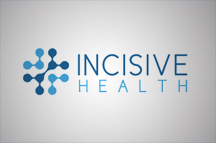Here are some of our highlights from the world of health on Twitter in 2014.
- What kills Londoners? Fascinating data blog.
- This story suggested the Government wanted to clear the grid of ‘minor’ stories, including on the NHS. How did that go?
- How a contagious dog tumour went global.
- Don’t have a heart attack at the weekend (also known as the case for 7 day working).
- The isolator. A 1925 invention designed to improve focus and concentration
- The gales saw an NHS under the weather sign puts man – well – under the weather.
- Infection control: it’s all about the fist bump. There’s a study to prove it
- Does ice cream cause polio? A great example from the 1940s of why correlation does not mean causation.
- The stark reality of A&E and the pressure it can place on clinicians.
- Some useful thoughts on making policy and research mix.
- In this situation, the financial deterrent might be unnecessary.

- When nudge goes wrong. These pencils had to be withdrawn for – er – obvious reasons.
- Animals as part of medical therapy – 1950s-style.
- Surgeons remove a chainsaw from a man’s neck. The man professes to feeling “very lucky,” which may be an understatement.
- The five most influential data visualisations of all time.
- A genuine anti-VD poster from 1944.
- Global scientific output has been doubling every 9 years since World War II, according to this paper in Nature.
- This chart shows that countries with high levels of alcohol abstention can also have very high levels of consumption.
- The doctor knows best (or they used to). Ethical decision-making in another era.
- Nine out of 10 Wikipedia entries contradict latest medical research, said scientists.
- This infographic suggests that UK health spending is the lowest as a % of GDP in G7 countries.
- This take by Andy Cowper on Simon Stevens’ speech to the NHS Confederation made us smile.
- The world as 100 people.
- The rule of rescue. It took 22 firefighters to rescue a man after he got stuck in a giant stone vagina.
- Want to get up to speed with social media? Don’t read this FBI guide to internet slang.
- “Tolerates…irrational political demands” – apparently a key attribute for a successful Permanent Secretary.
- “Ringfence – composed mainly of loopholes.” For classic NHS definitions look at #NHSlexicon.
- On average 14,000 tablets are prescribed to a person during their lifetime.
- How did World War One change medical treatment? From blood banks to the psycho-analysis, the impact was massive.
- In defence of (some) PR – an interesting blog on the role of science press officers.
- The Guardian story on our NHS income tax research provoked a storm of debate. The political parties responded with conference NHS spending commitments
- A surrealistic mega-analysis of redisorganization theories.
- Learn your surgical terms.
- Is smoking as sociable as farting? This Canadian advert equated the two.
- Ebolanomics – the role of prizes in addressing pharmaceutical market failure.
- Our report for Cancer Research UK demonstrated earlier diagnosis of cancer can save money AND lives.

- The ingredients of cough syrup have changed somewhat.
- What is the medical centre at a Formula One race for?
- In October we won the PR Week New Consultancy of the Year
- What academics are really saying.
- What might kill Americans (clue: it is unlikely to be Ebola).
- David Williams from the Health Service Journal began an in-depth investigation into pubs named after health ministers
- In the US, a veteran dies of suicide every 80 minutes.
- The reporting of statistics at its best.
- An award-winning piece on faceblindness.
- “Sacrificing your life on the alter of radioactivity”. Fascinating article about the pioneers of radiation.
- How voters react to Prime Ministers’ cats. No really.
- If health policy productivity went down, this may have been the culprit: Special Measures.

- Well done to the winners of our Lego ambulances.

- The year closed with our exclusive polling showing that Labour's lead over the Conservatives on health is too small for comfort and that David Cameron remains more trusted than Ed Miliband.
And finally…
- Happy New Year around the world.












